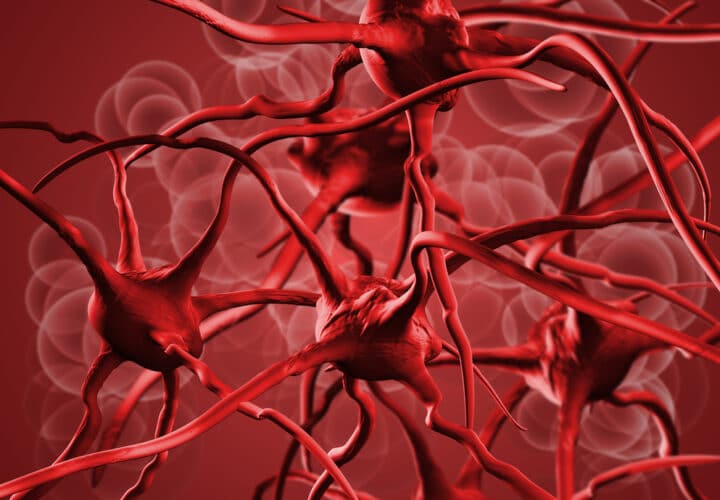Recognizing the four abnormal proteins in the brains of people with Alzheimer’s and related dementias is crucial for developing more effective treatments.
The toxic accumulation of four abnormal proteins in the brain is such a harbinger of cognitive decline, one researcher has taken to calling them “the four horsemen of the apocalypse.”
Recognizing the four abnormal proteins in the brains of people with Alzheimer’s and related dementias is crucial for developing more effective treatments. For decades, scientists have focused on the prime culprit of Alzheimer’s — beta-amyloid proteins that accumulate in the brain. Despite billions of dollars invested, drug trials including those targeting the proteins have largely failed, while much anticipation lies on the Food and Drug Administration’s decision whether or not to approve the anti-amyloid drug called Aducanumab for Alzheimer’s.
Researchers are now gaining a better understanding of one reason why clinical trials have been unsuccessful — people can have different brain diseases linked to varying abnormal proteins.
“Ten or 15 years ago, everybody thought that if you lose your memories and cognitive function in aging, you have this disease called Alzheimer’s disease, and there are different manifestations of the disease, but everyone has Alzheimer’s disease,” said Peter Nelson, a neuropathologist at the University of Kentucky’s Sanders-Brown Center on Aging. “It turns out there’s a lot of different diseases that affect people in aging.”
In a new study published in the Journal of the American Medical Association: Neurology, Nelson, who coined the proteins as “the four horsemen of the apocalypse,” and his team found that people with dementia who have not only beta-amyloid and tau in their brains — the biomarkers of Alzheimer’s — but also alpha-synuclein and TDP-43, suffered from a more rapid and aggressive decline in cognitive functions than people with dementia who had three or fewer misfolded proteins.
The protein alpha-synuclein can accumulate into large masses called lewy bodies in nerve cells, which are closely linked to lewy body dementia and Parkinson’s disease dementia.
Meanwhile, the misfolded TDP-43 protein is linked to limbic-predominant age-related TDP-43 encephalopathy, also known as LATE, a novel form of dementia first described by Nelson and colleagues last year. Symptoms of LATE such as memory loss and problems with thinking and reasoning mimic those of Alzheimer’s in milder forms. In fact, Nelson and his team previously found about one-quarter of people over the age of 85 have enough misfolded TDP-43 proteins to hinder their memory and thinking.
“It’s not just Alzheimer’s disease out there,” said Erin Abner, an author of the recent study and an associate professor at the University of Kentucky’s Sanders-Brown Center on Aging and College of Public Health. “If we are developing therapies that are targeting [beta-amyloid], they are unlikely to have any effect on alpha-synuclein and TDP-43, even if they were successful in having those downstream effects on blocking the spread of tau.”
In the recent study, the team examined brain autopsy data from 375 participants and the changes of their cognitive functions over about 10 years. More than 55 percent of the participants were diagnosed with dementia.
Nearly one in five of those with dementia had all four misfolded proteins, termed by the scientists as quadruple misfolded proteins. They progressed to dementia from a slight decline in cognitive abilities, known as mild cognitive impairment, at a faster rate than people with dementia who had three or less abnormal proteins.
“A lot of people actually get all four of these pathologies early on and they have a very swift early decline.” Nelson said. “This implies that, maybe, there’s a biological mechanism that involves all of them, and probably other proteins, misfolding like crazy and driving this bad cognitive trajectory.”
There is currently no treatment for people with quadruple misfolded proteins. But Nelson noted that “each one of those pathways is a candidate for a therapeutic strategy. And until we grapple with them, we have no hope anyways.”
While researchers have developed brain scans to detect beta-amyloid and tau, Nelson said there are no reliable measures of screening for alpha-synuclein and TDP-43 in living humans.
“Each one of those pathways is a candidate for a
therapeutic strategy. And until we grapple with
them, we have no hope anyways.”
Nelson along with his team are focused on a five-year clinical trial to find new ways of diagnosing LATE during life, attempting to develop measurement in the blood to indicate misfolded TDP-43 in the brain.
“It’s really inspiring that we are actually grappling with the complexity of why therapeutic trials have been failing,” Nelson said. “And now we’re developing much better strategies for addressing those pathways.”
Scientists may be able to develop an optimal treatment, Nelson added, if they identified the pathway that triggers the misfolding of the four proteins.
Alternatively, he said a combination of therapies may also be effective against the quadruple misfolded proteins. In search of one piece of the puzzle, his team is testing in the clinical trial whether nicorandil, a drug used to treat chronic heart failure, can prevent older adults’ symptoms of LATE from progressing.





Thank you so much for sharing this information. I’m currently doing a course at the university about understanding dementia better so that I could provide my family in South Africa with trustworthy information to help with the care of my mum with dementia and understand her behaviour better. Being in Australia makes it impossible to be there personally due to covid.